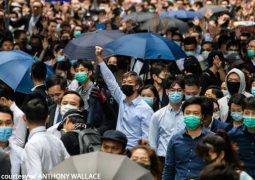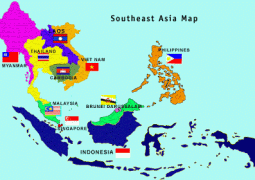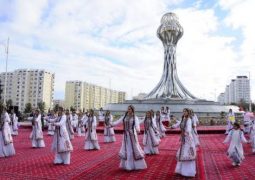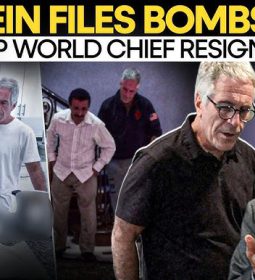Turmoil against religious harmony: Indian town anxiously awaits landmark Babri mosque-temple verdict
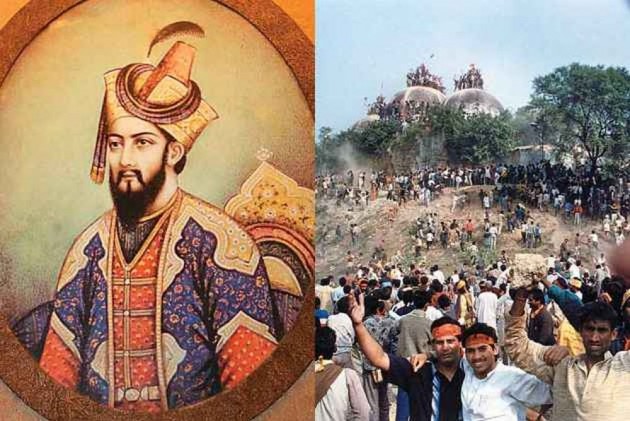
In Ayodhya, Hindus dream of Ram temple while Muslims call for ‘practical’ solution as top court set to announce verdict.
by Valay Singh
Ayodhya, India – Ayodhya and its twin city Faizabad in the northern state of Uttar Pradesh (UP) are in a state of heightened anxiety as the country’s top court is expected to deliver its verdict in the seven decades old legal dispute over a spot of land that Muslims and Hindus both claim as theirs.
The Supreme Court, which concluded its hearings in the case last month, will decide by mid-November whether a Hindu temple should be built in place of the medieval era Babri mosque, which was demolished by Hindu mobs in 1992.
Hindu groups claim the site was where their deity, Lord Ram, was born, while Muslims say they prayed at the mosque for generations until 1949, when an idol of Ram was surreptitiously placed inside the mosque.
Thousands of security personnel have been deployed to prevent the outbreak of violence. Hotel rooms have been booked for senior officers even as locals, apprehensive of the fallout of the verdict, have started to postpone marriages, religious functions and other programmes.
The Ram temple movement
While Hindus in this temple-town expect that the top court will rule in their favour, the minority Muslim community remains hopeful that the verdict will vindicate their claims.
“This time we won’t be caught by surprise like in 1992,” said Naim Ashrafi, 60, looking at the Ayodhya skyline dominated by spires of temples.
Baba Hazarilal, who was a part of the mob that brought down the mosque, wants the temple built [Valay Singh/Al Jazeera]
Prime Minister Narendra Modi’s Hindu nationalist Bharatiya Janata Party (BJP) rose to political prominence in the early 1990s on the back of the Ram temple movement that culminated in the demolition of the mosque.
Modi had promised to build the temple during the general elections campaigning earlier this year.
The court has to decide who owns the land on which the mosque stood among other issues, which are entangled in faith and sentiment, history and myth.
The demolition of the mosque built under the rule of Mughal emperor Babur sparked India’s worst Hindu-Muslim violence that left about 2,000 people dead, mostly Muslims.
In Ayodhya, which was until then a quiet pilgrim town, at least a dozen Muslims were killed.
Ashrafi survived the 1992 violence by hiding in marigold fields while rioters went on the rampage despite the presence of security forces.
Though senior BJP leaders, including former Deputy Prime Minister Lal Krishna Advani, have been charged in connection with the demolition of the mosque, the criminal trial has dragged on for years.
‘Hope that the judgement is balanced’
Baba Hazarilal came to Ayodhya as a young man in the 1980s, and was a part of the mob that brought down the mosque.
“With BJP governments at the centre as well as in Uttar Pradesh, I am sure our dream of a Ram temple will be realised,” Hazarilal, now in his 60s, says. “The court must respect Hindu sentiment and clear the way for a temple.”
As the deadline draws nearer, most people, particularly the youth in Ayodhya, wish for a resolution so that their town can move on.
“I believe that local Hindus are not the problem. I have many Hindu friends, we live here comfortably, the problem is those outsiders who come here to create trouble,” Sufiyana Ali, a 19-year-old aspiring photographer, told Al Jazeera.
A short distance from Ali’s house, folk dance instructor Mukesh Kumar, 26, was busy rehearsing with his group that works to preserve local folk dance and music.
“I don’t want to speculate on the case, these are the best legal minds, let them decide what is to be done. But it is an opportunity to bring a final closure to the dispute, so I hope that the judgement is balanced,” Kumar said.
The criminal trial against senior BJP leaders, including Lal Krishna Advani, right, has dragged on for years [File: Reuters]
Ali and Kumar represent a new generation who were born after the mosque demolition and subsequent violence. The new generation in Ayodhya, unburdened by its troubled history, wishes for better opportunities to fulfil its aspirations.
In 2010, the Allahabad High Court had ruled that the disputed area of 2.77 acres (11,210 square-metres) be divided into three equal parts, with two-thirds going to Hindus and one-third to the Sunni Muslim Waqf Board, which represents Muslims in the court.
But that judgement was challenged by all the parties in the Supreme Court.
The BJP has pushed for the temple within constitutional boundaries but many right-wing Hindu organisations, some of them linked to the ruling party, have wanted out of court settlement.
Earlier this year, the Supreme Court appointed an arbitration panel to mediate in the case but it failed to arrive at a settlement.
Political rhetorics
Meanwhile, right-wing Hindu leaders have continued to issue rhetorical statements claiming the site was theirs before one of India’s biggest court verdicts.
A Hindu godman-turned politician, Ram Vilas Vedanti, recently announced near Ayodhya that construction of the temple will start on December 6, the anniversary of the Babri mosque demolition, a day Muslims mark as “Yaum-e-Gham” or the day of mourning and right-wing Hindu groups celebrate it as “Shaurya Diwas” or the victory day.
Such assertions have stoked fears among the Muslim community, many of them admit that the construction of the temple is the only “practical” solution.
“Given the politics of the country, I feel that it is better for us to accept that even if we win the case we will never be able to build a mosque there,” said Salman, a 40-year-old who drives mainly Hindu pilgrims around Ayodhya in his electric vehicle.
Prime Minister Modi, in his recent weekly radio broadcast, however, seemed to call on members of civil society and religious leaders to exercise restraint.
Modi’s emphasis on peace and restraint, however, has not stopped leaders from his party and BJP’s other sister Hindu organisations from making provocative statements.
UP Chief Minister Yogi Aditynath, a Hindu monk known for his anti-Muslim rhetoric, has unabashedly called for the building of the temple despite holding a public position in an officially secular nation of 1.3 billion people.
Since his surprise elevation as chief minister in 2017, he has changed names of cities and landmarks bearing Muslim names and promoted Hindu pilgrim centres, including Ayodhya.
In 2018, he renamed Faizabad district as Ayodhya and announced the construction of a giant Ram statue in the town. Ayodhya was earlier part of Faizabad district.
‘A sense of deja vu’
During the recent celebrations of Hindu festival of Diwali, the BJP government pulled out all stops to fund a three-day festival that culminated in the lighting up of more than 550,000 earthen lamps.
Dozens of wall-sized TV screens mounted on trucks broadcast a popular 1980s TV show based on the epic Ramayana across Ayodhya and surrounding towns and villages.
Public announcements in the pilgrim town promised the beginning of Ram Rajya (glorified as an ideal government in Hindu folklore) and urged people to gather in large numbers in Ayodhya.
“I have been a regular visitor to Ayodhya’s temples but never before I have seen a government trying so hard to revive the glory of this ancient town,” said 35-year-old Gopal Das.
Far from this religious-political hustle-bustle of the main street, in a small mosque atop one of the many knolls that dot Ayodhya, 71-year-old Maulana Yasin hobbled up on his walking support and seated himself on a plastic chair.
“There is a sense of deja vu. Though things are peaceful at the moment, we are ready to rush our women and children to safer places if we sense any trouble,” he said.
Yasin had watched his brother Ameen being killed and then set on fire in 1992.
“None of those who attacked him were locals. It is the outsiders who come here to stoke communal fires across the country for political gains.
“I have faith in the judiciary, but whatever be the verdict, it must also ensure that nobody is allowed to disturb the harmony here. I only wish to see this dispute settled so I can die in peace.”
- Previous Hawaii Green Watch: Plastic pollution ravages iconic Pacific bird sanctuary
- Next Mesopotamia in mess: Inside the Baghdad tower taken over by protesters



